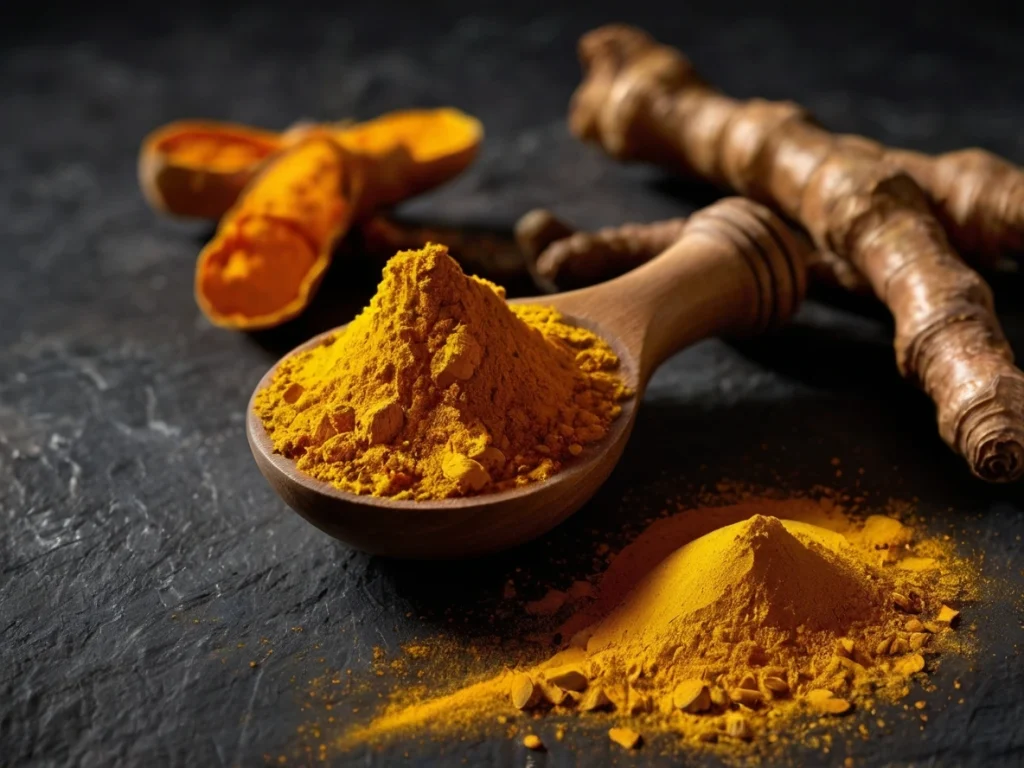Turmeric has often been referred to as the “golden spice” due to its vibrant yellow hue and countless culinary uses. But beyond its presence in the spice rack, this ancient herb is gaining recognition for its impressive array of health benefits. Originating from the Curcuma longa plant, turmeric, and its active compound curcumin, has been a staple in traditional medicine for centuries. As we explore the remarkable health advantages of turmeric, you may find yourself inspired to incorporate this golden goodness into your daily routine.
The Power of Curcumin: Nature’s Anti-Inflammatory Agent
At the heart of turmeric’s health benefits is curcumin, the compound responsible for its distinct color and many of its therapeutic properties. Research indicates that curcumin has powerful anti-inflammatory effects, making it an invaluable ally in combating various health issues.
Benefits of Curcumin
-
- Reduces Inflammation: Chronic inflammation is linked to numerous diseases such as arthritis, diabetes, and heart disease. Curcumin can help lower inflammation markers, promoting overall wellness.
-
- Aids Joint Health: Turmeric is often used as a natural remedy for arthritis. It may help alleviate joint pain and improve mobility by reducing inflammation in the joints.
-
- Supports Digestive Health: Turmeric promotes healthy digestion and can help alleviate bloating and discomfort. It stimulates the production of bile, which is crucial for fat digestion.
A Natural Antioxidant
Curcumin is also recognized for its strong antioxidant properties, allowing it to combat oxidative stress in the body.
Benefits of Antioxidants
-
- Protects Against Cell Damage: Antioxidants help neutralize harmful free radicals, reducing the risk of chronic diseases.
-
- Improves Skin Health: By protecting against skin damage from environmental pollutants and UV exposure, curcumin can promote a healthier, brighter complexion.
Enhancing Brain Function
Emerging studies suggest that curcumin might play a role in protecting against neurodegenerative conditions like Alzheimer’s disease.
Key Findings
-
- Boosts Brain-Derived Neurotrophic Factor (BDNF): Curcumin increases levels of BDNF, a protein linked to improved mood, memory, and cognitive function.
-
- May Improve Memory and Mood: Regular consumption of turmeric could enhance mood and cognitive function, making it a potentially beneficial addition to one’s diet.
Supporting Heart Health
Turmeric’s ability to reduce inflammation and oxidative stress may also extend to supporting cardiovascular health.
Heart Health Benefits
-
- Improves Endothelial Function: Curcumin can enhance the function of the endothelium, the lining of blood vessels, which is vital in regulating blood pressure and clotting.
-
- Reduces Risk Factors for Heart Disease: By reducing cholesterol levels and improving overall heart function, turmeric helps to mitigate several risk factors associated with heart disease.
Integrating Turmeric Into Your Diet
Introducing turmeric into your daily meals can be both enjoyable and beneficial. Here are some easy ways to incorporate this golden spice:
-
- Golden Milk: Mix turmeric with warm milk (or a dairy-free alternative), honey, and a pinch of black pepper for a soothing drink.
-
- Smoothies: Add a teaspoon of turmeric powder to your morning smoothie for an extra boost.
-
- Soups and Curries: Use turmeric in soups, stews, or curries to enhance flavor and nutrition.
-
- Seasoning: Sprinkle turmeric on roasted vegetables or incorporate it into grain dishes for added zest.
Final Thoughts on Healthy Eating
Food is not just fuel; it is medicine. Embracing a diet rich in whole, unprocessed foods, like turmeric and other spices, can significantly enhance your well-being. Remember, “Eat food, not much, mostly plants,” as author Michael Pollan aptly advises. Nourishing your body with healthy choices supports a healthier life—one delicious spice at a time!



